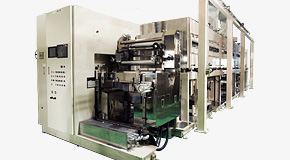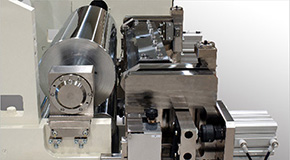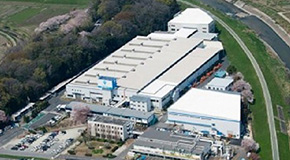Basic Policy on Establishment of Internal Control System
The internal control system of HIRANO TECSEED Co., Ltd. (hereinafter referred to as "the Company") is designed to be in accordance with the Companies Act and the Ordinance for the Enforcement of the Companies Act. As described below, the Company strives to promote legal compliance, operational efficiency and appropriate risk management. We constantly review, improve and amend this policy in response to our changing environment.
- 1. Systems to ensure that directors and employees execute their duties in compliance with all laws and regulations and the Company's articles of incorporation
- (1) The Company establishes a code of conduct for the directors and employees of the Company and the Company's group companies to guide their conduct, making sure they comply with all laws and regulations, the article of incorporation, and the principles of fairness and ethical standards;
- (2) The Company supports its social credibility with a system that ensures a spirit of compliance with laws and regulations;
- (3) The President has made compliance one of the Company's basic management policies and devotes himself to establishing, maintaining and improving the compliance system;
- (4) The Company establishes a whistleblower system that prevents whistleblowers from being disadvantaged if they make reports. At the same time, the Company emphasizes the early discovery and correction of any improper activity;
- (5) The internal control committee audits the execution of duties and the facts of compliance within each department and reports the results of its findings to the President.
- 2. Systems related to the retention and management of information pertaining to the execution of directors' duties
Information pertaining to the execution of directors' duties is recorded in documents or on electronic media and stored and controlled appropriately, in accordance with the guidelines for "ringi" (collective decision-making process), document control, and internal information control. In addition, the directors are allowed to access these information records as necessary.
- 3. Rules and other systems related to managing risk of financial and operational loss
- (1) To respond to various risks which can arise in association with the Company and the Company's group companies, the President's Council for the group companies, the board of directors, and the management council identify management and strategic risks and evaluate the measures to respond to such risks.
- (2) In the case of department-specific risks, the responsible department coordinates with related departments to set up a risk management system, including the establishment of necessary regulations, rules and guidelines and the preparation and distribution of a risk management manual.
- (3) If a new risk occurs, the board of directors takes necessary measures swiftly, to prevent the further spread of damage, by appointing a director responsible for dealing with the risk and setting up a task force, with that director acting as its head.
- (4) The Company establishes an "Internal Control Committee", including all the group companies as members, which performs self-evaluations and internal audits to ensure that financial information will be reported appropriately.
- 4. Systems to ensure that the directors of the Company and the group companies execute their duties efficiently
- (1) The duties and authorities of the directors and decision-making rules are stated in the Guidelines for the Allocation of Duties;
- (2) The regular meeting of the board of directors is held once a month and extraordinary meetings of the board of directors may be held as necessary. The purpose of its control system is to oversee and supervise the execution of the duties of the directors and makes sure they make management decisions appropriately;
- (3) The board of directors formulates management and budget plans and oversees budgetary control. Monthly and quarterly budgets are used as one way of evaluating the relationship between forecasts and actual results.
- 5. Systems to ensure the propriety of the business activities in a group of enterprises comprised of a stock company and any subsidiaries thereof
- (1) The Company and the Company's group companies coordinate with each other to manage relevant matters and provide guidance to affiliated companies, in the interest of maintaining their prosperity;
- (2) The Presidents' Council supervises the operational statuses of the Company's group companies and reports to the Company's board of directors.
- (3) The Company supervises and appropriately audits all the group companies. In addition, the accounting auditor of the Company works in coordination with the auditors of each group company, in view of the need for consolidated management of the group.
- (4) The Company provides the necessary guidance and support to enable each of its group companies to construct an effective internal control system.
- 6. Matters related to the audit and supervisory committee's request to appoint an employee to assist with the committee’s duties; matters related to maintaining the independence of the appointed employee from the directors (excluding those who are members of the committee); and systems to ensure that the employee follows the instructions received effectively
The audit and supervisory committee appoints employees to assist with the committee’s duties; these employees are under the committee’ direction. In addition, it is important that those employees’ duties cannot be interfered with by the directors (excluding those directors who are members of the committee). Therefore, the committee may request the other directors not to intervene concerning the duties of such employees, in accordance with the provisions of the Audit and Supervisory Committee Rules.
- 7. The system for the directors (who are not members of the audit and supervisory committee) and the employees appointed under the preceding paragraph to report to the audit and supervisory committee and other systems related to reporting to the audit and supervisory committee
- (1) Members of the audit and supervisory committee may, if necessary, attend meetings of the board of directors and other important meetings to request reports on issues they must know about;
- (2) Members of the audit and supervisory committee may, as necessary, request the directors and employees of the Company and the Company's group companies to report to them concerning information which they deem they must have in order to execute their duties. In addition, they are allowed to access records containing this information, such as meeting minutes.
- (3) If the directors or employees of the Company or Company's group companies become aware of any material violation of laws or regulations, or of the articles of incorporation, or of a fact that could result in notable damage to the Company, such individuals must report the matter to the audit and supervisory committee as soon as possible.
- (4) The Company prohibits directors or employees of the Company or the Company's group companies who have reported information to the audit and supervisory committee in accordance with the preceding paragraph from being placed at any disadvantage because of their action.
- 8. Matters related to the policy for dealing with expenditures or debts arising in association with the execution of the duties of the audit and supervisory committee's members (limited to expenditures connected with the execution of the duties of the audit and supervisory committee)
When a member of the audit and supervisory committee requests payment (including an advance payment) of expenses arising from the execution of his duties, the department responsible for the payment reviews the request and deals with this expense or debt as soon as possible, unless the payment has been deemed unnecessary to the execution of the audit and supervisory committee members’ duties.
- 9. Other systems to ensure that the audit and supervisory committee performs audits effectively
- (1) The audit and supervisory committee meets with the President at regular intervals to share information about important facts and issues concerning audits.
- (2) The audit and supervisory committee coordinates with the Internal Control Committee and the auditors of the group companies and consults with external experts such as attorneys, as necessary.
- (3) The directors and employees of the Company's group companies are required to respond swiftly and appropriately if the audit and supervisory committee or its assistant requests them to report on issues concerning the execution of operations or to submit related documents.
- 10. Systems to ensure that financial reports are reliable
The Company establishes a system to assure that internal controls concerning financial reporting are performed effectively and appropriately, in accordance with the provisions of the Financial Instruments and Exchange Act, and it coordinates with accounting auditors to ensure that the financial status of the Company is reported reliably and appropriately.
- 11. Systems to ensure that the involvement of anti-social forces in the activities of the Company is prevented
- (1) The Head Office General Affairs Department gathers information on anti-social forces, whether groups or individuals, and deals with any issues;
- (2) The Company, as a basic policy, eliminates any relationship (including a business one) with anti-social forces (whether groups or individuals) and maintains the social responsibility of its business activities;
- (3) The Company coordinates with external experts, such as police and attorneys, to prevent the possibility of anti-social forces involving in the activities of the Company.
Established on May 19, 2006
Revised on June 28, 2016






